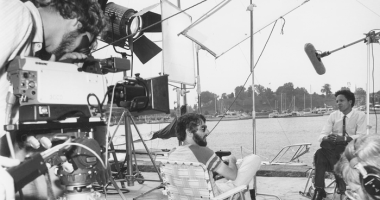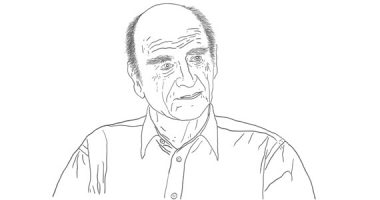We talk to the philosopher Yuk Hui about the shift from the industrial to the cybernetic age, the uselessness of our current-day dystopian discourses and the need to encourage a diversity of technological thinkings able to combat the homogenisation of capitalism.
“Whoever invokes ‘humanity’ wants to cheat.” Yuk Hui begins with this warning, a paraphrase of Pierre-Joseph Proudhon by Carl Schmitt and an indication of Hui’s steadfast stance against the totalising discourses of modernity. In contrast, for Hui, our intimate and inexorable relationship with technology can only be fruitfully considered if we accept that there is a multiplicity of technological thinking located within individual world views that guarantee their diversity. Just as there is not one, but diverse humanities, so there is not one technology, but multiple cosmotechnics. This is the philosophical project that Hui has developed over the course of his relatively short but prolific philosophical career, which includes works such as On the Existence of Digital Objects (University of Minnesota Press, 2016), The Question Concerning Technology in China (Urbanomic, 2016), Recursivity and Contingency (Rowman i Littlefield, 2019), Art and Cosmotechnics (University of Minnesota Press, 2021) and his compilation of articles published in Spanish, Fragmentar el Futuro (Caja Negra, 2020).
Hui is a somewhat anomalous case in the history of the philosophy of technology. In a way that diverges from the infamous division between two types of philosophies of technology proposed by Carl Mitcham in the late 1980s, to wit, one centred around engineering and another, more humanistic philosophy, Hui first studied systems engineering before eventually going on to earn a PhD in Philosophy under the supervision of his mentor, Bernard Stiegler. It is this fact, that he transcends both disciplines, which allows him to offer an informed look at the hyper-technological condition of our contemporary world.
Today, what defines our technological condition is the development and expansion of cybernetic technologies. While the technological leap that occurred during the Industrial Revolution was characterised by the introduction of automation, in our time we no longer have only automated technologies, but technologies that are able to regulate themselves and maintain a more open relationship with their environment. In other words, to become more autonomous. And not only that, but the world in which we live is now shaped more than ever by this web of technology. Hui echoes Jacques Ellul when he says that “We are living in a gigantic technological system.”
However, this condition is dominated by a capitalist logic that homogenises our relationship with technology. This is reflected in the adoption of the utopian or dystopian discourses that the media are so fond of espousing, which sketch out a series of idyllic or catastrophic futures that seem like something out of science fiction. “It seems like we live in the time of science fiction. We talk a lot about AI domination, about mass unemployment. More and more people are trying to understand our future through science fiction. “I find this really disturbing. I’m a big fan of science fiction, but I find this problematic because it means that we fail to analyse our concrete situation.” Just as Gilbert Simondon – an author whose work is key to understanding Hui’s philosophy – opposed our imaginings around robots in the introduction to his book On the Mode of Existence of Technical Objects (University of Minnesota Press, 2016), Hui rejects the catastrophic imaginings that have been inspired by technological automation and artificial intelligence. To the contrary, we must develop a new critique of economic policy that specifically highlights the technological problems of the present in order to understand the new forms of alienation ushered in by contemporary technology.
For Hui, the goal should be to deepen our technological imagination outside of the capitalist hegemony and colonialism, to generate localised understandings rooted in the particular historical relationships between each culture and its own technological advancements. “We have to accept that there are a multiplicity of technological thinkings. The process of modernisation is a form of colonisation. Modernisation implies a homogenisation of knowledge and world views.” We have the impression that technology is universal, but we fail to understand technology in the same terms of multinaturalism that are talked about by anthropologists such as Eduardo Viveiros de Castro or Philippe Descola. This implies localising technological thought, hence the importance of his concepts of cosmotechnics and technodiversity. “If we think about the multiplicity of technologies in different philosophical traditions, we can see that technology has different relations to aesthetic, philosophical and religious thinking.” However, this does not imply a return to pre-modern or pre-capitalist forms of technology as some outmoded romantics have tried to propose (which would be impossible from the outset), but of reframing, fracturing and diversifying our technological condition.






Leave a comment